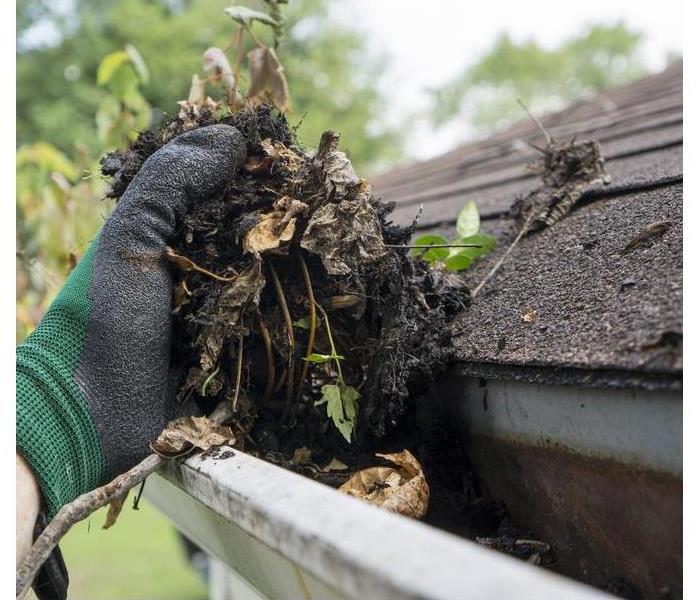Here Are Five Tips To Avoid Water Damage In Your Home
12/5/2022 (Permalink)
Five Tips On How to Avoid Water Damage
Water damage can cause serious problems in your home. You might not realize it's happening until the damage has already been done. Water that seeps into your house can cause mold and mildew growth, which can start to smell and cause structural damage. If you think you have water damage in your home, call a professional immediately—the sooner they discover where the leak is coming from, the better chance there is of fixing it before it causes too much damage. Here are five tips on how to avoid water damage:
# 01. Clean your gutters regularly.
There are many things that can cause water damage in your home, but the most common culprit is dirty gutters. The water from your roof collects in a gutter, which then drains down to the ground. If you don't clean the gutters regularly, debris can build up and clog them, so they spill over onto your foundation or back into your yard. This causes flooding inside and outside of your home and can lead to rot of wood structures such as decking or siding.
Fortunately, it's easy to avoid this problem by cleaning out your gutters at least twice per year (preferably during fall and spring).
# 02. Pay attention to your sump pump.
Sump pumps are a necessary part of any basement or crawlspace, but they can also be the cause of water damage if they're not properly maintained. If your sump pump isn't working, you could be at risk for major water damage, but you can avoid this by taking care of your pump and doing regular inspections.
Here are some tips on how to inspect your sump pump:
- First, look at how much water is coming into your house and determine if it's normal or excessive. If there is too much water coming into the home and you can't find the source, it could be caused by a malfunctioning sump pump.
- Check the float switch on your sump pump to see if it's working correctly. If it's stuck in one position or not moving at all, then replace or repair it before using your pump again.
- Look at where you install your sump pump—is it near an outlet? If so, be sure that nothing has interfered with its ability to draw power from that outlet (such as nearby trees). Also check for any signs of damage from animals or insects getting inside the system; this can cause big problems with functionality over time!
If you suspect that something isn't quite right with your pump but aren't sure what to do next, call in some experts who can inspect everything thoroughly before recommending repairs or replacement parts.
# 03. Control the moisture in your bathroom and kitchen.
Bathrooms and kitchens are the most likely places to have water damage, so it's a good idea to take extra precautions in these areas. Water can cause mold, mildew and other problems that can be very expensive to fix.
Water damage can occur when there is excessive moisture in your home. Moisture comes from many sources:
- leaky pipes under sinks or tubs
- leaking showers and toilets
- leaky faucets
# 04. Double-check your dishwasher and washing machine.
If you have a dishwasher or washing machine, you may be at risk of experiencing water damage in your Harrison, TN home. If you are not careful, these appliances can cause flooding and water damage. Here are some steps to take to make sure that your dishwasher and washing machine don't cause any damage:
1. Make sure that the hoses on your washing machine are connected properly so that they drain properly when the machine is turned off.
2. Check for leaks around the door of your dishwasher, as well as at all connections to the dishwasher itself.
3. Make sure that any leaks you find don't go unnoticed for too long; if they do, it could cause serious damage to your home!
If any of these issues exist with your current machinery, then it is best to repair or replace them before they lead to any major problems down the road!
# 05. Look for cracks in basements, foundations, and retaining walls.
The next time you are looking through your basement, foundation, and retaining walls, look for the tell-tale signs of water damage. Look for cracks in the flooring, or anywhere else water could seep through. If you notice any cracks or holes that would allow water to get into your home's foundation, act immediately. There are multiple ways to fix them: some can be patched up with cement filler; others may need more extensive repairs by a professional contractor.
Conclusion
Hopefully these tips can help keep you and your family safe from water damage at home. If your home or business suffers from water damage, don’t hesitate and give our SERVPRO of Chattanooga team a call today!






 24/7 Emergency Service
24/7 Emergency Service
